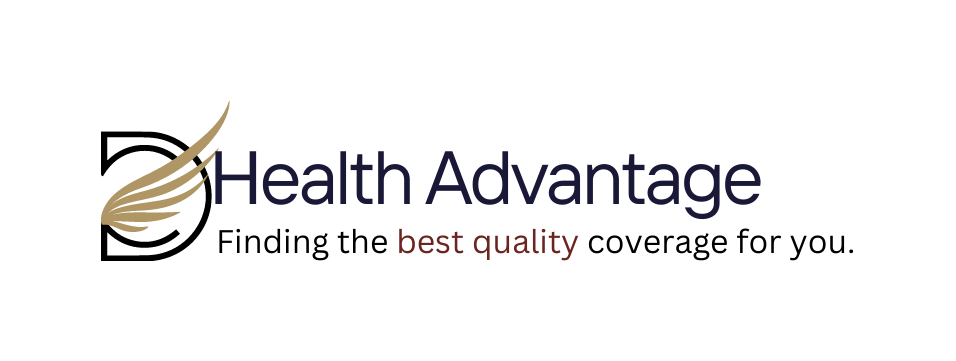

See What Policies Are Right for You
See What Policies Are Right for You
Our Commitment

Free Consultation
Committed to Excellence

Tailored Policies
Personalized Approach, Education Driven

Longevity Focused
Staying by your side for Years to Come

Join Our Family
I believe it's important to know who you are speaking to when it comes to making important decisions. I was born in Ohio, near the Football Hall of Fame (Go Ohio State Buckeyes!). When I was in middle school, my family moved to Florida. After graduating high school, I attended the University of Central Florida. I met my beautiful better half, and we are currently expecting our first child this fall (any helpful tips are appreciated!).
I pride myself on being education-focused, and I make sure to explain everything about health insurance so that you understand your policy. Obviously, health insurance isn't perfect. Having worked in the medical field, I know the chaos that can ensue while at the hospital or clinic. It's important to make sure you're covered so that you can focus on your loved ones, not on the bills.
Blog Posts

Self Employed/1099 Contract Coverage
Navigating Health insurance as 1099/Self Employed
If you are self-employed, you are not alone. According to a report by the Bureau of Labor Statistics, there were over 9 million self-employed individuals in the United States in 2020. While being your own boss can have many advantages, one of the challenges is finding affordable health insurance. Unlike traditional employees who often have access to group health insurance plans, self-employed individuals must navigate the complex world of individual health insurance plans. Today, we will explore some of the health insurance options available for self-employed individuals.

"Being self-employed shouldn't mean being self-insured."- Alex Padilla, former California State Senator and current United States Secretary of Transportation
Individual Health Insurance Plans:
Individual health insurance plans are policies that you purchase on your own, rather than through an employer. They are available through the Health Insurance Marketplace or directly from insurance companies. These plans typically offer coverage for essential health benefits, including doctor visits, hospitalization, and prescription drugs. Premiums and deductibles vary depending on the plan and your location.
Individual health insurance plans offer several types of coverage, including:
Health Maintenance Organization (HMO): An HMO plan offers coverage for services provided by doctors and hospitals within the plan’s network. These plans typically require you to choose a primary care physician who will coordinate your care.
Preferred Provider Organization (PPO): A PPO plan offers more flexibility in choosing doctors and hospitals. These plans typically offer higher out-of-network benefits but have higher premiums and deductibles.
Point of Service (POS): A POS plan combines elements of an HMO and a PPO. These plans require you to choose a primary care physician and offer a network of doctors and hospitals. However, you can also receive care outside the network for a higher cost.
Exclusive Provider Organization (EPO): An EPO plan is similar to an HMO but does not require a primary care physician. These plans offer coverage for services provided by doctors and hospitals within the plan’s network.
Group Health Insurance:
If you have employees, you may be eligible for group health insurance. Group health insurance plans are available to businesses with at least one employee. These plans can offer more affordable premiums and more extensive coverage than individual plans. However, as a self-employed individual, you cannot qualify for a group health plan if you do not have employees.
Group health insurance plans can be categorized into two types:
Fully-funded plans: A fully-funded plan is purchased by an employer from an insurance company. The insurance company assumes the risk and pays for the claims.
Self-funded plans: A self-funded plan is when an employer assumes the risk and pays for the claims. Self-funded plans are typically used by larger companies that have a stable and healthy workforce.
Group health insurance plans offer several types of coverage, including:
Health Maintenance Organization (HMO): An HMO plan offers coverage for services provided by doctors and hospitals within the plan’s network. These plans typically require employees to choose a primary care physician who will coordinate their care.
Preferred Provider Organization (PPO): A PPO plan offers more flexibility in choosing doctors and hospitals. These plans typically offer higher out-of-network benefits but have higher premiums and deductibles.
Point of Service (POS): A POS plan combines elements of an HMO and a PPO. These plans require employees to choose a primary care physician and offer a network of doctors and hospitals. However, employees can also receive care outside the network for a higher cost.
High-Deductible Health Plan (HDHP): An HDHP is a plan with a high deductible and lower premiums. These plans are typically paired with a Health Savings Account (HSA) to help employees pay for qualified medical expenses.
Short-Term Health Insurance:
Short-term health insurance policies provide temporary coverage for a specific period, usually up to 12 months. These plans are designed to fill the gap in coverage when you are between jobs, waiting for a new health plan to start, or transitioning to Medicare. Short-term health insurance plans do not cover pre-existing conditions and may not provide coverage for all essential health benefits.
Health Care Sharing Ministries:
Health care sharing ministries are organizations that pool funds from members to pay for medical expenses. Members of these organizations share a common set of religious or ethical beliefs and agree to help each other pay for medical bills. These organizations are not considered health insurance, and they may not cover all medical expenses.
As you can see, self-employed individuals have several health insurance options to choose from. The best plan for you will depend on your individual needs and budget. It is essential to do your research, compare plans, and consider all the costs and benefits before making a decision. With the right health insurance plan, you can protect your health and financial well-being while enjoying the benefits of being your own boss.
Our Mission
Our mission is to provide personalized health insurance solutions for individuals and families. We understand that health insurance is not a one-size-fits-all type of thing, and we're committed to finding the right plan that meets your specific coverage needs and budget.
At DC Health Advantage, we take the time to understand your unique situation and help you navigate the complexities of the healthcare system. Our goal is to help you take control of your health and your finances by providing customized plans that cater to your specific needs and budget.
We believe that everyone deserves access to quality healthcare, and we're passionate about finding the right plan that fits your individual needs. That's why we offer solutions not only on the ACA Marketplace (Obamacare) but also on private side health plans that qualify you based on good health. These plans come with deductibles as low as $0, low max out-of-pocket expenses, and PPO options.
We're committed to making a positive impact on the lives of our clients. Our mission is to empower individuals and families to take control of their health and their finances by providing personalized health insurance solutions that meet their unique needs. We're honored to be a part of your healthcare journey.
Don't wait any longer to get the coverage you deserve. Contact us today to receive a custom quote for your family. Let us help you take control of your health and your finances.

Frequently Asked Questions (FAQs)
ACA Marketplace (Obamacare) Vs. Private Insurance Plans
The main differences between the ACA (Affordable Care Act) marketplace and private insurance are:
Plan availability: The ACA marketplace offers a range of standardized plans that are required to provide certain essential health benefits, while private insurance companies offer their own range of plans that may have different benefits and costs.
Cost: The cost of ACA plans is often lower than private insurance plans, due to subsidies and tax credits provided to eligible individuals. Private insurance plans lower premiums than the ACA when subsidies and tax credits are not eligible.
Eligibility: ACA plans are available to individuals who do not have access to employer-sponsored coverage, while private insurance may be offered through an employer or purchased independently, however they qualify you based on good health.
Enrollment: The ACA has open enrollment periods (Nov. 1st- Dec. 15th) when individuals can sign up for coverage or make changes to their existing plans. Private insurance enrollment periods are year round.
It's important to carefully evaluate the options and costs of both ACA plans and private insurance to determine which option is best for your healthcare needs and budget.
Why is health insurance important?
Health insurance is important because it helps individuals pay for medical expenses that can be very costly. Without health insurance, people may be unable to afford necessary medical care or may end up with large medical bills that can cause financial hardship.
What types of health insurance are available?
There are several types of health insurance available, including:
Employer-sponsored insurance (employer pays a portion of your health insurance premium)
ACA Marketplace (Obamacare)
Private insurance (Qualified based on good health)
Medicare (for individuals over age 65 or with certain disabilities)
Medicaid (for individuals with low income)
Short-term health insurance plans (for temporary coverage, usually 1-3 months)
What is a deductible?
A deductible is the amount of money you are responsible for paying for medical expenses before your insurance starts covering costs. For example, if you have a $1,000 deductible, you would need to pay $1,000 out of pocket for medical expenses before your insurance coverage kicks in.
What is a copayment?
A copayment, or copay, is a fixed amount you pay for a medical service or medication. For example, you may have a $20 copay for doctor visits or a $10 copay for prescription drugs (keep in mind you may owe additional if deductible is not met).
Is the network important?
Yes, the health insurance network is an important consideration when selecting a health insurance plan. The network of providers is the group of healthcare providers (such as doctors, hospitals, clinics, and other healthcare facilities) that accept your health insurance plan. It is important to choose a health insurance plan with a network that includes healthcare providers you trust and can access easily. If you have a preferred healthcare provider, you should check if they are in the network of the plan you are considering. If you choose a plan with out-of-network providers, you may have to pay higher costs or even the full cost of the services.
How can I enroll in health insurance?
You can enroll in health insurance through your employer, the ACA marketplace, or through private insurance companies. Enrollment periods vary by plan and employer, so it is important to check the enrollment deadlines for the plan you are considering.
What is a pre-existing condition?
A pre-existing condition is a health condition or illness that existed before the start of a new health insurance policy. Before the Affordable Care Act (ACA), insurance companies could deny coverage or charge higher premiums for individuals with pre-existing conditions. However, under the ACA, insurance companies cannot deny coverage or charge higher premiums based on pre-existing conditions (Does NOT apply to private insurance only the ACA).
Can I keep my current healthcare providers if I switch insurance plans?
It depends on the plan and the providers. If you have specific healthcare providers that you prefer, it is important to check if they are in the network of the new insurance plan you are considering. If your providers are not in the new plan's network, you may have to pay higher costs or even the full cost of the services.
Get Inspired by our Customer Success Stories!

Questions? Book a Call
Whether you're looking to protect yourself, your family, or your business, I'm here to help! Contact me today to schedule a consultation and learn more about how I can help you secure the protection you need for a brighter tomorrow.


All rights reserved. This is not an offer to enter into an agreement. Information and programs are subject to change without notice.
DC Health Advantage
7055 South Kirckman Road, Orlando FL 32819
(407) 516-7177
custom_values.company_logo=https://storage.googleapis.com/msgsndr/N9vlhjwRQXG7M7a9XRy2/media/643591eb41ff7955c6119391.png
custom_values.headshot=https://storage.googleapis.com/msgsndr/N9vlhjwRQXG7M7a9XRy2/media/64359167a2d73e6b4b51c538.jpeg
